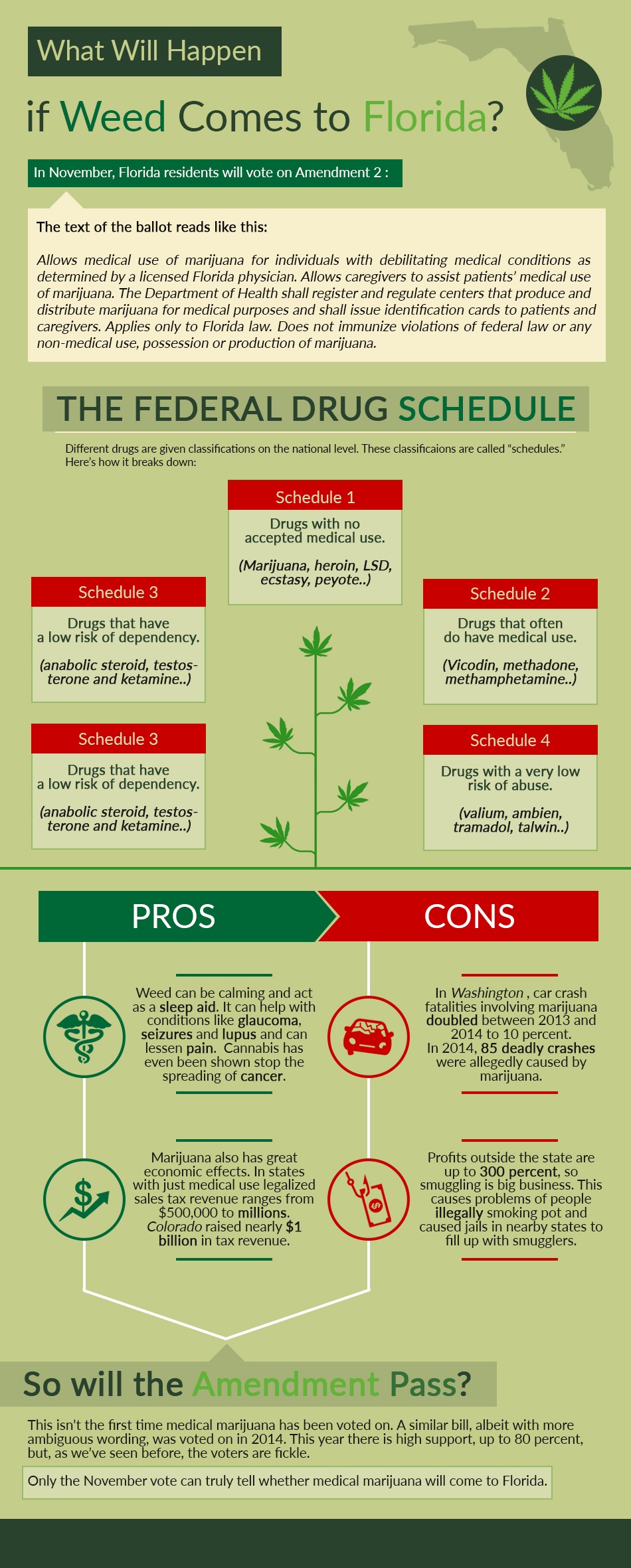The Pros and Cons of Weed in Florida
There are currently four states — Alaska, Colorado, Oregon and Washington — as well as a handful of cities that have completely legalized marijuana for medical and recreational use. In addition, there are 21 other states, plus Washington, D.C., have legalized cannabis for medical use. Come November, Florida could become the next. There is a new state constitutional amendment being put to a vote in November that would allow those with “debilitating medical conditions” to use marijuana to treat and control their symptoms.
This isn’t the first time medical marijuana has been voted on. A similar bill, albeit with more ambiguous wording, was voted on in 2014. Support was strong, but a last-push effort from an opposition group caused the bill to fail. This year, there is massive support for medical marijuana (and recreational, though it’s not on the ballot) — up to 80 percent — but, as we’ve seen before, the voters are fickle. Only the November vote can truly tell whether medical marijuana will come to Florida.
It’s important for voters to understand exactly what it is they are voting for. There are many different myths surrounding marijuana, medical or otherwise. Let’s bust those myths, both positive and negative, here and now.
Despite what proponents and opponents of marijuana may believe, there are both positives and negatives of legalizing weed. While a very specific group of patients can use medical cannabis after a law passed by Governor Rick Scott a couple of years ago, the new referendum would add more conditions to the list. That would allow more people to get treatment that could potentially help, but could also cause more trouble for the state. Whether the amendment passes or fails, only time will tell if the voters made the right decision.

